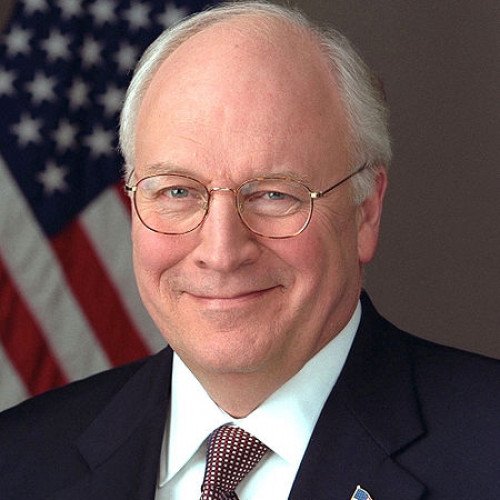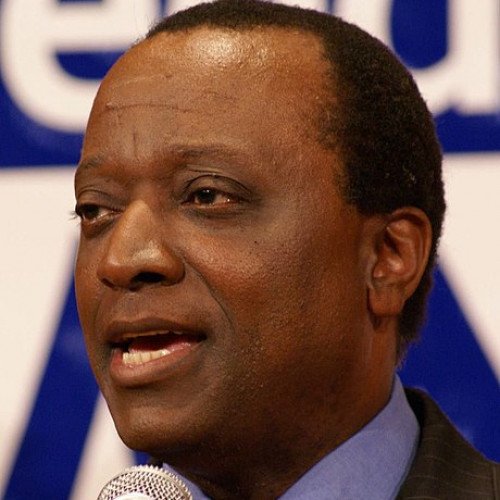Dick Cheney VS Alan Keyes

Dick Cheney
Richard Bruce Cheney ( CHAY-nee; born January 30, 1941) is an American politician and businessman who served as the 46th vice president of the United States from 2001 to 2009 under George W. Bush. He has been cited as the most powerful vice president in American history. He is also one of the most unpopular politicians in the history of the U.S., holding an approval rating of just 13% at the time of leaving office.Born in Lincoln, Nebraska, Cheney grew up there and later in Casper, Wyoming. He attended Yale and then the University of Wyoming, at the latter of which he earned a BA and an MA in Political Science. He began his political career as an intern for Congressman William A. Steiger, eventually working his way into the White House during the Nixon and Ford administrations. He served as White House chief of staff from 1975 to 1977. In 1978, Cheney was elected to the U.S. House of Representatives. He represented Wyoming's at-large congressional district from 1979 to 1989, briefly serving as House minority whip in 1989. Cheney was selected to be the secretary of defense during the presidency of George H. W. Bush, holding the position for the majority of Bush's term from 1989 to 1993. During his time in the Department of Defense, Cheney oversaw the 1991 Operation Desert Storm, among other actions. Out of office during the Clinton administration, Cheney was the Chairman and CEO of Halliburton Company from 1995 to 2000. In July 2000, Cheney was chosen by presumptive Republican presidential nominee George W. Bush as his running mate in the 2000 presidential election. They defeated their Democratic opponents, incumbent Vice President Al Gore and Senator Joe Lieberman. In 2004 Cheney was reelected to his second term as vice president with Bush as president, defeating their Democratic opponents Senators John Kerry and John Edwards. During Cheney's tenure as vice president, he played a leading behind-the-scenes role in the George W. Bush administration's response to the September 11 attacks and coordination of the Global War on Terrorism. He was an early proponent of invading Iraq, alleging that the Saddam Hussein regime possessed a weapons of mass destruction program (no active WMDs were in Iraq) and the Hussein regime had an operational relationship with Al-Qaeda (even though there was scant credible evidence of such a relationship at the time). He also pressured the intelligence community to provide intelligence consistent with the administration's rationales for invading Iraq. Cheney was often criticized for the Bush Administration's policies regarding the campaign against terrorism, and for his support of wiretapping by the National Security Agency (NSA) and of torture. He became at odds with President Bush's position against same-sex marriage in 2004.
Statistics for this Xoptio

Alan Keyes
Alan Lee Keyes (born August 7, 1950) is an American conservative political activist, pundit, author and former ambassador. A doctoral graduate of Harvard University, Keyes began his diplomatic career in the U.S. Foreign Service in 1979 at the United States consulate in Mumbai (then Bombay), India, and later in the American embassy in Zimbabwe. Keyes was appointed Ambassador to the Economic and Social Council of the United Nations by President Ronald Reagan, and served as Reagan's Assistant Secretary of State for International Organization Affairs from 1985 to 1987; in his capacities as a U.N ambassador, Keyes was involved in the implementation of the Mexico City Policy. Keyes ran for President of the United States in 1996, 2000, and 2008. He was the Republican nominee for the U.S. Senate in Maryland against Paul Sarbanes in 1988 and Barbara Mikulski in 1992, as well as in Illinois against Barack Obama in 2004. Keyes lost all three elections by wide margins. Keyes hosted a radio call-in show, The Alan Keyes Show: America's Wake-Up Call, from 1994 until 1998 on WCBM. The show was briefly simulcast by National Empowerment Television. In 2002, he briefly hosted a television commentary show on the MSNBC cable network, Alan Keyes Is Making Sense. He is a long time columnist for World Net Daily.